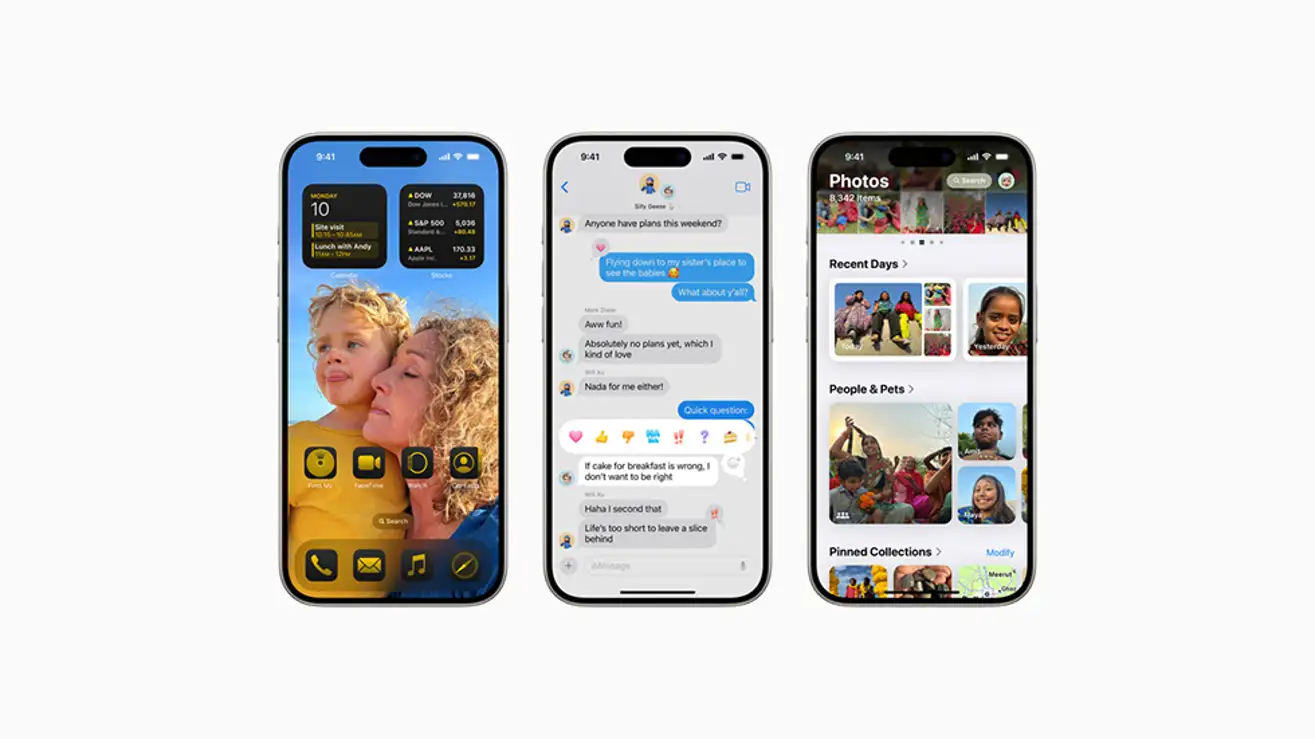
iOS 18 Unveiled: Apple’s Latest Updates and How They Stack Up Against Android
At Apple’s recent WWDC 2024 keynote, the tech giant unveiled iOS 18, its upcoming major software update set to redefine the iPhone experience later this year. Featuring significant advancements in AI integration dubbed Apple Intelligence, alongside a host of quality-of-life improvements, iOS 18 promises to bridge gaps and introduce features that have long been enjoyed by Android users.
One of the most anticipated updates in iOS 18 is the newfound freedom to move app icons anywhere on the Home screen—a feature previously exclusive to Android devices. This move addresses a longstanding user request, allowing iPhone users to customize their experience more extensively than ever before.
iOS 18 also introduces tinted icons, a feature reminiscent of Android’s Pixel Launcher, adapting color accents based on wallpaper and system themes. This customization extends further with the ability to adjust colors to personal preferences, offering users more control over their device’s aesthetic.
In a significant step towards compatibility, Apple quietly announced RCS (Rich Communication Services) support for iOS 18, enabling iPhone users to enjoy enhanced messaging capabilities like high-resolution photos and Tapback animations. While Google pioneered RCS, Apple’s integration aims to unify messaging experiences across platforms, a move welcomed by users familiar with Android’s capabilities in this area.
Scheduled messaging is another highlight of iOS 18, allowing users to compose and send messages at a designated time—a feature already familiar to Google Messages users since 2022. This addition not only enhances user convenience but also brings iOS closer to feature parity with its Android counterparts.
Game Mode, a feature designed to optimize gaming performance by minimizing background activity, also makes its debut in iOS 18. While Android has boasted similar gaming enhancements since Android 12, Apple’s entry into this space aims to cater to the growing segment of mobile gamers looking for a seamless experience on their devices.
Another notable addition is the ability to type commands to Siri, a feature that echoes Google’s longstanding functionality with its Assistant. This update acknowledges user preferences for different interaction modes, offering flexibility in how users engage with their digital assistants.
Live Audio Transcriptions in iOS 18 enhance productivity by allowing users to record audio and generate transcriptions directly within the Notes app—an integration similar to Google’s Live Transcribe feature introduced in 2019 for Pixel devices. This accessibility feature underscores Apple’s commitment to inclusivity and productivity across its ecosystem.
iOS 18 also enhances the pull-down interface of iPhones, introducing more customization options for home controls, quick settings, and third-party app shortcuts—a feature akin to Android’s notification shade evolution that began with Android 7.
For users with both iPhone and Mac, iOS 18 offers seamless integration with iPhone mirroring capabilities, allowing users to stream their iPhone screen to a Mac and use it with a mouse and keyboard. While Android has supported third-party solutions for similar functionality, Apple’s native implementation simplifies the user experience across its ecosystem.
Apple’s Genmoji feature in iOS 18 introduces a novel way to generate emojis from text prompts, leveraging Apple Intelligence to create personalized emoji expressions. This innovation competes with Android’s Emoji Kitchen, known for its playful approach to emoji customization since its introduction on Google Keyboard in 2020.
While iOS 18 introduces several features familiar to Android users, such as app icon customization and scheduled messaging, Apple’s approach emphasizes seamless integration within its ecosystem and leverages Apple Intelligence for enhanced user experiences. These updates underscore Apple’s commitment to innovation and user satisfaction, setting the stage for a compelling upgrade cycle later this year.
In conclusion, iOS 18 marks a significant evolution in Apple’s mobile software, bringing a host of new features that align closely with capabilities already available on Android. As Apple continues to refine its ecosystem, the upcoming release promises to deliver a robust user experience that blends innovation with familiarity, setting a new standard for smartphone functionality in 2024 and beyond.
You may also like
Archives
Calendar
| M | T | W | T | F | S | S |
|---|---|---|---|---|---|---|
| 1 | 2 | 3 | 4 | 5 | 6 | 7 |
| 8 | 9 | 10 | 11 | 12 | 13 | 14 |
| 15 | 16 | 17 | 18 | 19 | 20 | 21 |
| 22 | 23 | 24 | 25 | 26 | 27 | 28 |
| 29 | 30 | 31 | ||||
Leave a Reply